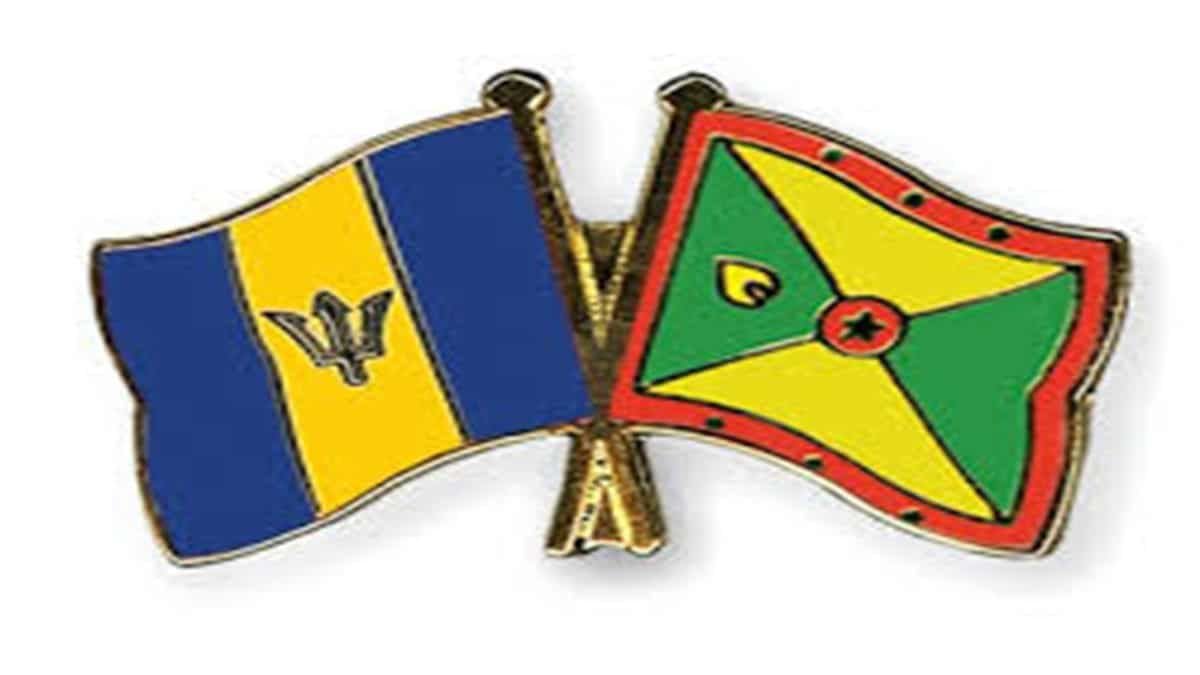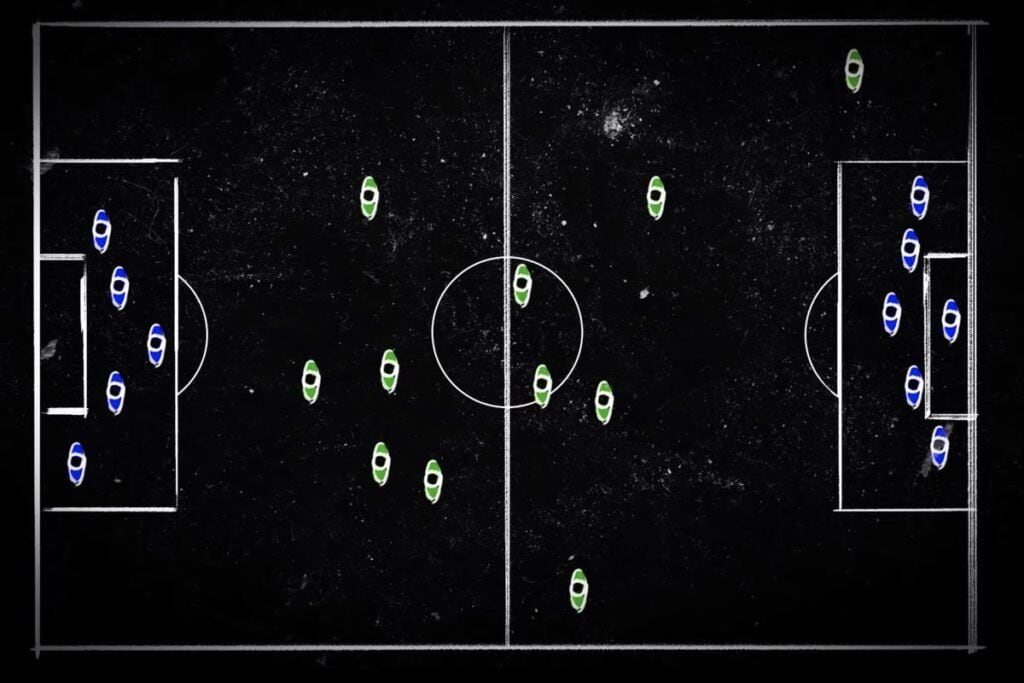
Sometimes football has unusual things, like that divine hand of Diego Maradona in the middle of the Azteca Stadium that unlocked a difficult match and gave Argentina the move to the semifinal of the 1986 World Cup, which he would eventually win.
But if that “hand of God” was immortalized among the most iconic plays in the history of the king sport, a match, much more earthly than that Argentina-England, it could perhaps win the title of the most unusual in history, even if the memory was not as benevolent to it as with Maradona's blessed punch.
We are referring to Barbados-Granada played in the final stage of the group stage of the Caribbean Cup in 1994, a very strange match whose result was motivated by a rule that has not since been implemented in the tournament: the double gold goal.
What was so strange about it? Well, I don't know if I've ever heard of a team defending the opponent's goal to prevent it from scoring a goal against it.
But before we go into history, let's first have some context.
The Caribbean Cup
The Caribbean Cup was a tournament organized by the Caribbean Football Union, a small concacaf-affiliated body representing some 25 national teams from the Americas.
The tournament was held until 2017 when it was replaced by the Concacaf Nations League and by 1994 it was in its fifth edition.
The championship had a somewhat strange organization scheme. First there was a group stage with 16 zones, of which only the first in each zone qualified for the next round. The second phase was also group, but there were only two zones made up of the qualifiers of the first phase. Then the semifinal and final instances were played.

The winner of the tournament won a spot in the Concacaf Gold Cup, which is equivalent for North and Central America to the Copa America for the nations of the south of the continent.
But even if this were the case, the low level of the teams competing in the tournament and the little cultural penetration of football in these countries made the Caribbean Cup an unattractive spectacle for the public.
Therefore, the organizers of the 94 edition decided to make some changes to the football regulations to make it more interesting, which would end up having unusual consequences.
They first determined that no match could be tied, not even those in the group stage, so if equality was decreed in the regular 90 minutes, an additional 30 minutes would be played. But there was an additional trick: in the elongation the golden goal rule would be implemented, that is, whoever scored the first goal won the match.
The rule, common in several tournaments during the 1990s, had another “Caribbean” adaptation for this tournament, because instead of a golden goal, the teams that scored in the elongation were awarded “golden goals”, that is, every so often they were worth twice as much. Something I've never seen before.

These strange rules had a direct effect on the standings, many of them defined by the number of goals in favor of one team, especially when they tied in points with another. In other words, there were situations where it was 'most profitable' for the teams to tie in the 90th minute and score a double goal in the elongation.
The final match
The final group phase of the 94′ Caribbean Cup had its epicenter in Trinidad and Tobago, which had recently recovered from a strong coup attempt and an intense tropical storm.
As news that year Haiti returned as a contender in the final group phase, and the Montserrat team made its debut. In addition, the selections of the Netherlands Antilles, Aruba, Saint Lucia, Cuba and Jamaica were absent.
These “big absences” added to the overall low level of the tournament, whose attention was focused on the definition of Group A in which Puerto Rico, Granada and Barbados were.
The final match, which would define the passage to the next round of only one of the three teams, would be played between Granada, which was tied three points with Puerto Rico, and Barbados who had 0 points.
To pass the round, Barbados had to win to draw in points and score at least two goals to beat them in the tiebreaker.
With this scenario, the ball rolled in the National State of Barbados on January 27, 1994.
An unusual definition
As expected, the match began with the locals thrown with everything to look for the two goals that would give it the final phase of the tournament in Trinidad and Tobago.
With 10 minutes left until the end of the match, the “Pride de Bajan” was getting the epic, it won 2-0 against Granada and had the classification in the stock market. But in the 83′ minute of the game the visitors discounted, 2-1, result enough to qualify despite the defeat.
The Barbados players could not believe it, the victory escapes them at all in the end and no matter how much they tried to score another goal, time was playing against them. On the other side of the court, Granada fans celebrated the qualification.
But the celebrations ended soon because Barbarean technical director Kevin Millard had an unusual but very intelligent idea. Playing by the particular rules of the tournament, he ordered his players to score at their own door. Yeah, as incredible as it sounds, he sent them to score an own-goal.
Remember that the matches could not be tied, there had to be a winner, so the own-goal sent them directly to overtime and thanks to the double golden goal rule, Barbados would only have to score one more goal in the elongation to be victorious.
A risky strategy but which in principle bought the game another 30 minutes of play, a better alternative to being eliminated when normal time was already dying.
So defender Terry Sealey sneakily approached his area, passing the ball short and at the foot of his goalkeeper until he finally kicked to score in his own goal. Match score 2 to 2 and there were three minutes left to finish the game.
Those last few minutes were crazy. Because the Granada team desperately sought to score... Where was it!
If they scored in the Barbados goal they would qualify by winning the match and adding 6 points in the group overall, but if they scored in their own goal they also qualified because although they lost the match, the goal difference still favored them.
This is how madness broke out, with the Barbados team split in two, half team defending their goal, and the other half in the Granada goal to prevent the Grenadians from scoring an own goal.

The slogan was clear: Granda couldn't score a goal, no matter what goal he tried to do it in.
What was observed in this match stunned the fans and the referee himself, because they could not believe that something like this was happening. The craziest thing of all was that the strategy worked, the match was tied and in the extension Trevor Thorne scored the golden goal that, being worth double, gave the long-awaited qualification to the Barbados national team.
Group A was like this: Barbados, 3 points+1 goal difference; Granada 3 points and 0 goal difference; and Puerto Rico 3 points -1 goal difference.
For posterity, the statements of the coach of Granada, James Clarkson, were left after the match: “I feel like I was cheated. The person who invented these rules is a candidate for an asylum. Our players didn't know where to attack. I've never seen anything like that. In football, you have to score goals against your opponent to win, not against.”
This story also has a fundamental difference with that Maradonian hand of God, and that is that what could be described as 'divine justice' operated here since Barbados was eliminated in the first match of the next phase, while Argentina not only won that match against England but would win the world cup.
Maybe Barbados was just lucky and wasn't as blessed as Diego in the 86 World Cup. In any case, the unusual match they played served to ensure that the crazy rule of the double golden goal was never used again.
KEEP READING
Últimas Noticias
Debanhi Escobar: they secured the motel where she was found lifeless in a cistern

The oldest person in the world died at the age of 119

Macabre find in CDMX: they left a body bagged and tied in a taxi
The eagles of America will face Manchester City in a duel of legends. Here are the details

Why is it good to bring dogs out to know the world when they are puppies




